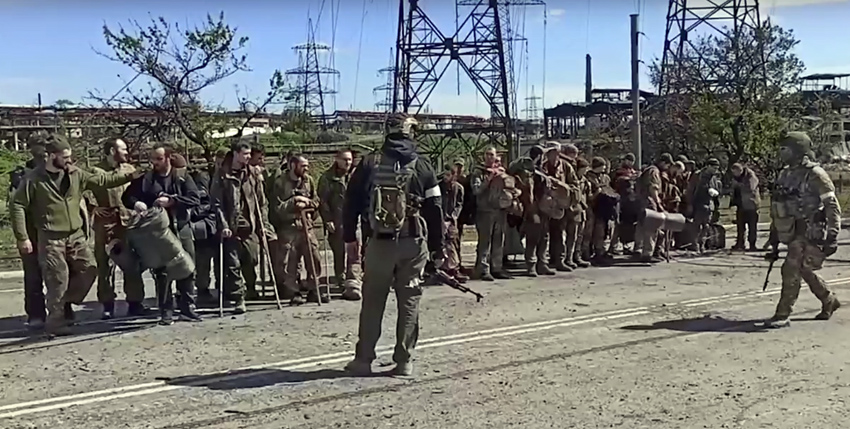
THE WEST tried to hit Russian citizens themselves with sanctions, Russian Prime Minister Mikhail Mishustin said on Thursday in his annual government report to the State Duma.
‘In the very beginning, the West tried to assure us that the sanctions were not aimed against our citizens.
‘At that time, there were no illusions about it, but now even a person far from global politics understands: the main target was the Russian people,’ the head of the Russian Cabinet of Ministers pointed out.
He explained that the West was trying to bring down the Russian financial system, so that people could not use bank cards, and disrupt economic and business ties, forcing their own companies to withdraw from the Russian market, taking huge losses.
‘They tried to make the products Russians are used to disappear from store shelves, and at the same time throw them out on the street and deprive Russian employees making money from working at these organisations – that is those people, whose work created their multibillion-dollar profits.
‘They wanted to cause mass unemployment in our country and radically reduce the quality of life,’ Mishustin added.
He stressed that Russia’s opponents ‘did not hesitate to use any means’.
‘They blew up the Nord Stream gas pipelines, froze bank accounts, cut banks off from the international payment system, and tried to block all banking and economic activities.’
‘They used to tell us about the inviolability and sanctity of private property but today, the property and money of our citizens and companies are being seized only because they come from Russia,’ Mishustin concluded.
Commenting on the recent state visit, it is the results of President Xi Jinping’s visit to Russia that matters, not the Western coverage that was predictably hostile, Kremlin Spokesman Dmitry Peskov told reporters on Wednesday.
‘Undoubtedly, the most important thing is not the West’s reaction after all, but the results of these talks that have taken place. The main thing is the results of the state visit itself.’
‘As for the reaction of the Western countries, it is practically on all issues nothing but unfriendly and deeply hostile. This is not a secret to anyone. The coverage of this important visit is not an exception,’ Peskov stressed.
Chinese President Xi Jinping was on a state visit to Russia from March 20 to 22.
On Monday, he had a tete-a-tete informal meeting with Putin, which lasted for 4.5 hours.
On Tuesday, the Chinese leader met with Russian Prime Minister Mikhail Mishustin and then arrived in the Kremlin for official talks with Putin.
The leaders signed two joint statements after the talks. They both pointed out that the talks were successful.
Deputy Chairman of the Russian Security Council Dmitry Medvedev, who was part of the expanded circle of Russian delegates at the talks, pointed out that he was pleased that most Westerners were furious about Russia-China high-level talks.
Russian President Vladimir Putin and his Chinese counterpart Xi Jinping did not discuss Kiev’s peace formula on the Ukrainian settlement during talks in Moscow, Peskov told reporters on Wednesday.
‘No, the Ukrainian peace formula was not discussed, there was an exchange of opinions on the provisions of the Chinese peace plan.’
According to Peskov, Ukrainian President Vladimir Zelensky’s regret that Beijing did not respond to his offer to join Kiev’s peace formula is ‘a matter that concerns China-Ukraine bilateral relations.’
Peskov recalled that on Tuesday, when summarising his talks with the Chinese president, Putin reported on the discussion of the Chinese peace plan.
Putin pointed out that many provisions of the Chinese peace plan on Ukraine may be taken as basis for the Ukrainian settlement when the West and Kiev would be ready for it.
At the same time, he pointed out that so far, no such readiness had been observed.
Meanwhile, Moscow and Beijing intend to jointly protect international energy security, including critical cross-border infrastructure, between Russia and China, according to their Joint Statement posted on the Kremlin’s website on Tuesday.
‘The parties will jointly protect international energy security (including critical cross-border infrastructure) and stability of chains of production and supplies of energy products,’ the statement reads.
Russia and China will also ‘facilitate fair energy transitions and low-carbon development with consideration of the principle of technology neutrality, and jointly contribute to long-term, healthy and stable development of the global energy market.’
Also Russia and China are ready to create a joint working body for the development of the Northern Sea Route, Putin said at talks with Xi Jinping on Tuesday.
‘We see cooperation with Chinese partners in developing the transit potential of the Northern Sea Route as promising.
‘In general, the transport and logistics infrastructure is being improved.
‘Our countries are united by a long land border, so the formation of railway and road corridors in the direction of China-Europe and back through Russian territory remains an absolute priority to meet the needs of growing cargo and passenger traffic,’ Putin noted.
He also recalled the transport infrastructure facilities that were launched last year.
‘The launch of traffic on bridges will reduce the cost and time of transporting goods between Russia and China, expand the geography of trade and increase the volume of transit with the countries of the Asia-Pacific Region’.
The Northern Sea Route is a shipping route and the main sea line in the Russian Arctic sector.
It stretches along the northern coasts of Russia across the seas of the Arctic Ocean (Barents, Kara, Laptev, East Siberian, Chukchi and Bering seas).
The route consolidates the European and Far Eastern ports of Russia and navigable river mouths in Siberia into a single transport system. The route’s length is 5,600km from the Kara Strait to Providence Bay.